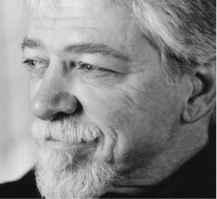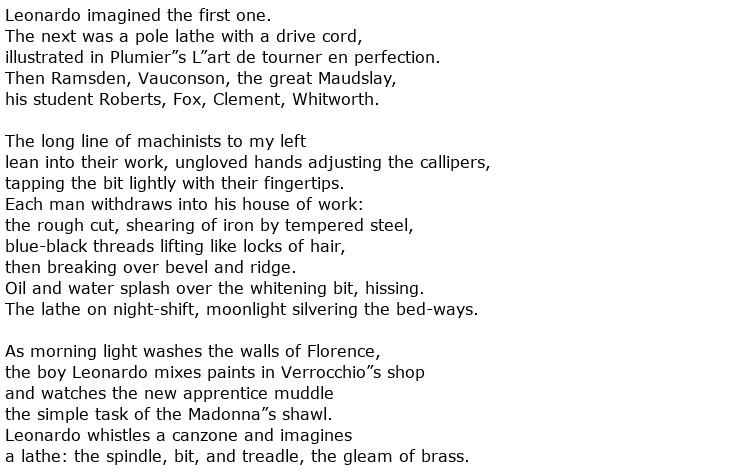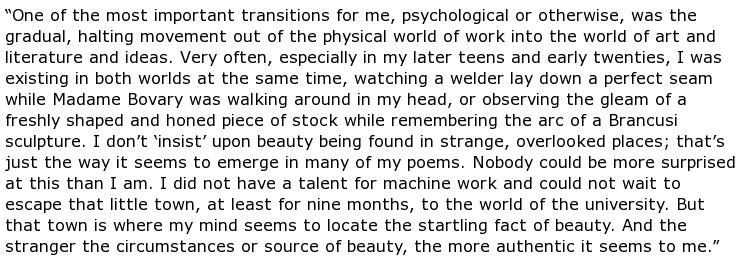 B.H. Fairchild is a multi-award winning American poet who has made a career out of fusing his experiences growing up amongst “blue collar,” mid-Western industrial landscapes with so-called “high art”. A Los Angeles Times review of his 2009 collection of poetry, which he called Usher: Poems, described Fairchild’s writing as:
B.H. Fairchild is a multi-award winning American poet who has made a career out of fusing his experiences growing up amongst “blue collar,” mid-Western industrial landscapes with so-called “high art”. A Los Angeles Times review of his 2009 collection of poetry, which he called Usher: Poems, described Fairchild’s writing as:

This curious amalgam of writing styles and the exploration of everyday American themes has won him a large, enthusiastic following. The LA Times reviewer went on to say that people who enjoy reading prose will enjoy Fairchild’s poetry because it is:

B. H. Fairchild was born in 1942, in the town of Houston, Texas. He is the son of a machine lathe operator. The family moved around the oil fields of Texas, Kansas and Oklahoma, living in a number of small towns along the way. On leaving school, Fairchild was sent to the Universities of Kansas and Tulsa. He realised that he had a talent for writing which drew on his keen observations of the people and landscapes around him. His family and friends were working class and he wrote about their everyday triumphs and struggles on the empty, industrial landscapes that they lived and worked in.
Fairchild’s writing somehow manages to uncover elements of beauty amongst all the grit and desolation evident to all who experience industrial environments. Along with other American poets such as James Dickey and William Carlos Williams he writes in “the American grain”, finding the extraordinary buried in the everyday events and memories of the people around him.
Fairchild’s most famous book of poetry is The Art of the Lathe which was published in 1998, no doubt in tribute to the trade that his father followed. As well as being a finalist for the National Book Award, the book won the Beatrice Hawley Award. The title poem illustrates the practical application of machinery while reminding us that Leonardo da Vinci was the first to portray such a machine in one of his drawings. Here is an extract from the poem – the first two verses and the last one:

In 2004 his Early Occult Memory Systems of the Lower Midwest won three separate awards including the Bobbitt National Prize for Poetry. Perhaps on a similar theme Fairchild also produced, in 1980, a critical study of the poetry of William Blake. The title of this study is Such Holy Song: Music as Idea, Form, and Image in the Poetry of William Blake (1980).
It is the mixture of quintessentially American themes that Fairchild uses in his poetry that evokes the most comment amongst critics. An example refers to his poem Usher which contains references to:

A revealing interview that he gave on his writing inspiration refers to the intersection of physical labour and memories. Here is an extract from that interview:

B. H. Fairchild has filled a number of English and Creative Writing teaching posts at colleges and universities around the country including Professor of English at the University of North Texas. His honours and awards are numerous including the William Carlos Williams Award and fellowships of the National Endowment for the Arts and the Guggenheim Foundation. Now in his 73rd year he continues to write poetry.

